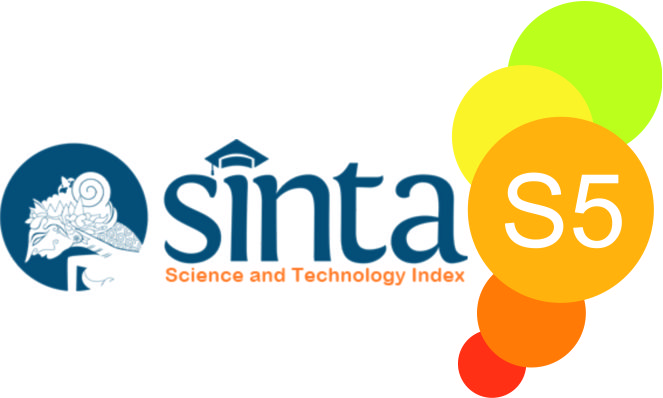PERILAKU KECURANGAN AKADEMIK MAHASISWA DALAM PROSES PERKULIAHAN
STUDI KASUS MAHASISWA KONSENTRASI AKUNTANSI ANGKATAN 2014 DAN 2015 FKIP EKONOMI
Abstract
The purpose of this study was to determine how the image of academic cheating behavior of students in the lecture Student Accounting Concentration of Forces in 2014 and 2015 FKIP Economics. This study uses primary data. The primary data through questionnaires distributed directly to students accounting concentration of forces in 2014 and 2015. Data collection techniques in this study was a questionnaire. The number of samples in this study were 48 students of Economic Studies Program Accounting Concentration Forces in 2014 and 2015. These results indicate that the behavior of academic cheating is at a medium level which students still do a lot of good academic cheating in the exam as well as the provision of duty until in the lecture.
Downloads
References
Burnington, MA: Elsevier Academic Press.
Anderman, Eric M Murdock Tamera B. 2002, Psychology of academic cheating
London: Elsevier.
Arikunto Saharsimi. 2006. Prosedur Penelitian, Suatu Pendekatan Praktik. Jakarta PT Rineka Cipta.
Azwar Saifuddin. Metode Penelitian : Yogyakarta Pustaka Pelajar Budi Matindas. (2010). Mencegah Kecurangan Akademik
(http:budimatindas.bolgspot,com/2010/08/mencegah-kecuranganakademik. html) diakses pada selasa 4 Oktober 2016.
Buksit. 2006. Handbook of the Teaching of Psychologi. Oxford : Blackwell Publishing.
Cohen Lois dkk. 2007. Research Method In Education: Sixth Edition, London Routledge.
David, Stephen F dkk. 2009. Cheating in school : What We know and What We Can Do. Chicester : Wiley Backwell.
Dody Hartanto. (2012). Bimbingan & Konseling Menyontek: Mengungkap AkarMasalah dan Solusinya. Jakarta: Penerbit Indeks.
Endra Murti Sagoro. (2011). “Pensinergian Mahasiswa, Dosen, dan Lembaga dalam Pencegahan Kecurangan Akademik Mahasiswa Akuntansiâ€. Jurnal Pendidikan Akuntansi Indonesia. Vol. XI, No. 2. Hal. 54-67.
Helen Marsden, dkk., (2005). Who cheats at university? A selfreport study of the dishonest academic behaviours in a sample of Australian University Student. Australian Journal of Psychology. Vol 57(1). Page 1-10.
Hendricks (2004). Academic Dishonesty : A Study in The Magnitude of The Justification for Academic Dishonesty among College Undergraduate and
Graduate Student. Journal Of College Student Development. Vol 35. Page 212-260.
Howell, C. 2006. Mengontekstualisasikan kecurangan penelitian : Sebuah Proposal sederhana. AERA Proposal – Moral Pembangunan SIG. 1 agustus.
Kurniawan, Anon. 2011. Perilaku kecurangan akademik mahasiswa psikologi UNNES. Skripsi. Semarang : Fakultas Ilmu Pendidikan Jurusan Psikologi Universitas Negeri Semarang.
Morris, D., & Kilian, C. 2007. Do accounting students cheat? A study examining undergraduate accounting students' honesty and perceptions of dishonest behavior. A Study Examining Undergraduate Accounting Students' Honesty and Perceptions of Dishonest Behavior.
Nonis, S., & Swift, C. O. (2001). An examination of the relationship between academic dishonesty and workplace dishonesty: A multicampus investigation. Journal of Education for business, 77 (2), 69-77.
Riski, S.A. 2009. Hubungan prokrastinasi akademis dan kecurangan akademis pada mahasiswa fakultas psikologi universitas sumatera utara, Skripsi, Jurusan Psikologi Universitas Sumatera Utara, Sumatera Utara. Sukmadinata Nana
Syaodih. 2005. Metode Penelitian Pendidikan. Bandung: PT Remaja Rosdakarya. Sanapiah Faisal : Format – format Penelitian Sosial. Hal 163-188.
Sugiono. 2003. Metode Penelitian Bisnis. Edisi ketiga. Bandung: CV. Alfabeta Sukmadinata Nana Syaodih. 2005. Metode Penelitian Pendidikan. Bandung: PT
Remaja Rosdakarya.
Whitley Bernard E, Keith – Spiegel Patricya. 2002. Academic Dishonesty: An Educator’s Guide. New Jersey: Laurence Erlbaum Associates, Inc.









 This work is licensed under
This work is licensed under 